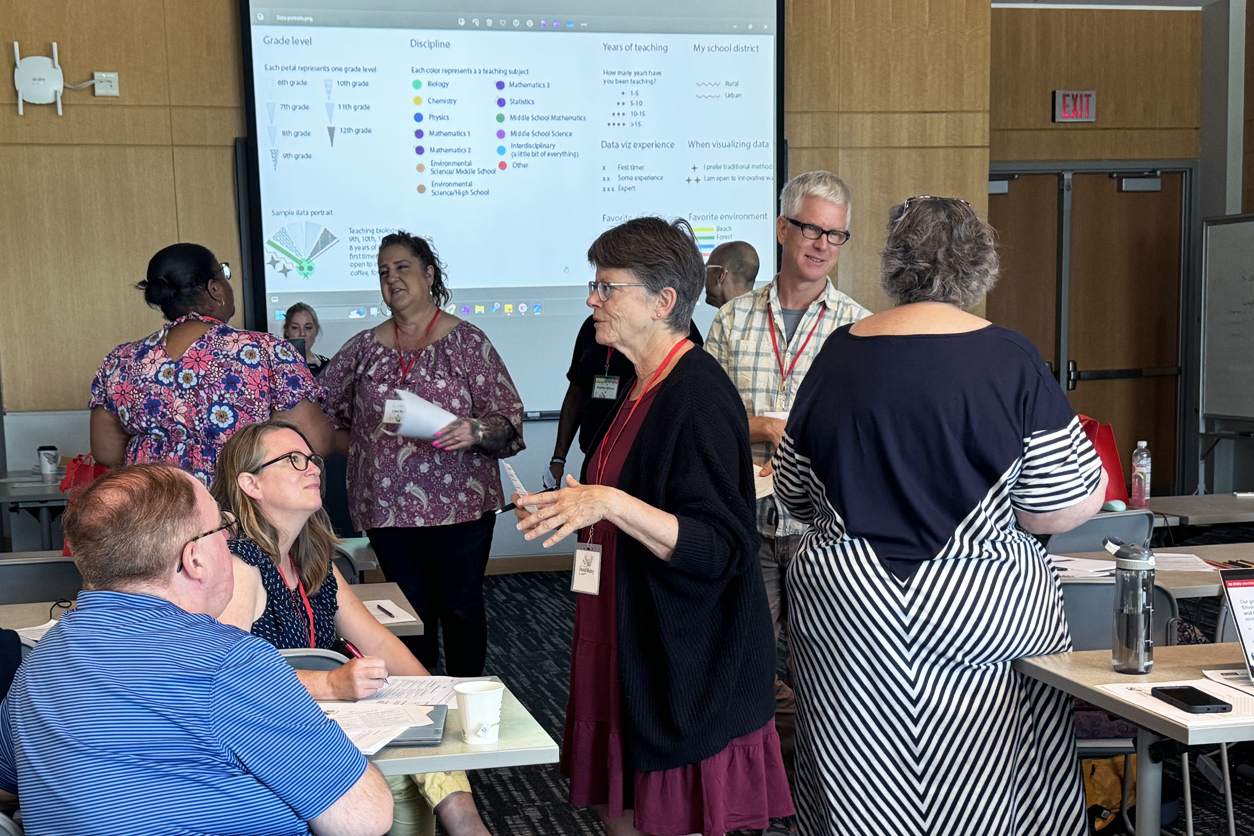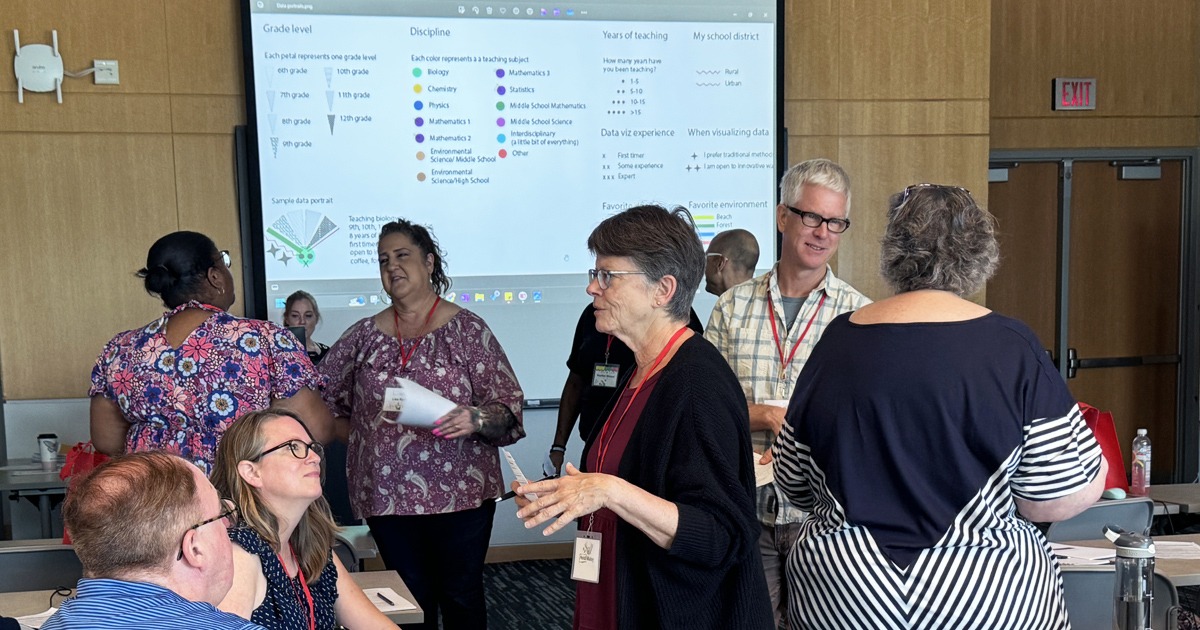In summer 2024, the NIEHS-funded North Carolina State University (NC State) Superfund Research Program (SRP) Center launched a year-long project to bring data science into middle and high school classrooms across North Carolina. In partnership with the NC State Center for Human Health and the Environment, the program incorporates data from the SRP Center’s research on PFAS, a group of harmful man-made chemicals that resist degradation.
“Training the next generation of researchers is a priority of the SRP, along with using data science and multidisciplinary methods to tackle complex research questions,” said Michelle Heacock, Ph.D., who directs the Hazardous Substances Research Branch at NIEHS. “It’s inspiring to see our grant recipients start this training early. Introducing data science in middle and high school is crucial to prepare students for a data-driven world and to foster critical thinking and collaboration, while equipping them with skills for future careers in technology, health care, and environmental science.”
To design the program, the NC State team partnered with Taryn Shelton, a former science teacher who now works at NC State’s Science House and Data Science Academy connecting educators to science-related learning opportunities.
“For our program to truly benefit teachers, we knew we needed to design it alongside those who’ve been in the classroom,” said Katy May, NC State SRP Center Community Engagement Core leader. “Teachers are experts in K-12 education, and we’re experts in research. By working together, we make the most impact.”
Summer workshops launch the program
The program began with two workshops held on NC State’s campus, where 11 teachers gathered June 24-28 and July 22-24 to learn data science techniques and explore the research happening at the university. The teachers also visited labs, where they had the opportunity to meet scientists and ask them questions about their work.
“We wanted to make it easy for teachers from rural and urban North Carolina to join,” May said. “So, we provided housing and meals for teachers coming to campus.”
Creating multidisciplinary lesson plans
After their campus experience, the teachers split into groups and began developing lesson plans using data from NC State’s PFAS research. These lessons aim to be both locally relevant and aligned with North Carolina’s science standards. The program encourages teachers from different scientific disciplines to work together.
One group of biology and math teachers is developing lessons that use data from NC State’s zebrafish research to understand immune responses to PFAS. Another group of environmental science and physical science teachers is designing a case study on water pollution using local surface water measurements from NC State research. Other groups are working with data from soil and vegetable samples based on an SRP study that found adding PFAS-free compost to contaminated soil helps plants absorb less of the chemical.
In addition to scientific data, teachers are also incorporating insights from a statewide survey led by NC State, which gathered North Carolina residents’ views and experiences with PFAS and other environmental health issues. This allows students to see the broader, real-world impact of PFAS research on local communities.

“We want to inspire students to think about how different disciplines can work together to accomplish a common research goal,” May explained. “It’s exciting to see teachers using multiple data sets that complement each other to give students a fuller picture of PFAS.”
Testing in the classroom and looking to the future
As the school year unfolds, teachers are testing their lessons in the classroom and meeting virtually to share feedback and problem solve challenges together. The group will return to NC State October 11-12 to present their progress and continue learning from university researchers.
The program will culminate in a spring 2025 symposium, where teachers will showcase their work and discuss its impact on their students. May hopes the data science program will become an annual event with sustained funding to allow more teachers to participate.
(Mali Velasco is a research and communication specialist for MDB Inc., a contractor for the NIEHS Division of Extramural Research and Training.)
Source link
factor.niehs.nih.gov

